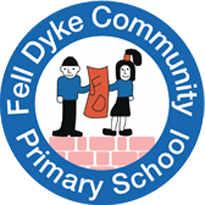History
Our Aim
At Fell Dyke Community Primary School, it is our aim to inspire pupils’ Historical curiosity so that our pupils are involved in their learning. History should help children understand the complexity of people’s lives, the process of change over extended periods of time, the diversity of societies and relationships between different groups, as well as develop an understanding their own identity and challenges of their time. To help children do this, each unit of work links to one of our 'ICE' themes:
- Innovation
- Citizenship
- Empire
The ideas within these three themes build over the children's time at Fell Dyke.
Curriculum Organisation
We have a range of classes including mixed age year groups across Key Stage 1 and Key Stage 2. This means we have two cycles of history topics to be taught within a two-year period, to ensure that all topics have been covered. It also means that there is not always a linear time order to the topics (from recent times to ancient times). Instead, we have placed the most relevant history topics together and put them in the best order possible. Knowledge and skills acquired earlier in the school are built upon steadily in each new year group to ensure a broad, balanced body of knowledge develops over time.
In Nursery and Reception, children learn that they have similarities and differences that connect them to, and distinguish them, from others. They are encouraged to show interest in the lives of other people and remember and discuss significant events in their personal experience.
In Key Stage 1 the focus is on building the children’s knowledge of key events in popular British history, such as The Gunpowder Plot, The Great Fire of London and well-known Monarchs. We want the children to have a good understanding of core parts of British life and culture and establish the foundations of working and thinking like a historian.
In lower Key Stage 2, the knowledge and skills from Key Stage 1 are built on through further units relevant to more recent critical developments in British life such as how The Railways helped make Britain strong during the industrial revolution. Children are also introduced to older periods of history that have shaped our country today. These include the period our island was invaded and ruled by The Romans, Anglo-Saxons and Scots and Vikings in the middle ages.
Finally, in upper Key Stage 2, children explore our rich local industrial heritage to compare with the world of work they will face when they’re older and learn about how World War 2 changed Britain and other countries involved in this conflict. Our oldest children also start to learn about ancient civilizations such as The Maya and Ancient Egypt as they start to understand more of the world and the rich legacies we have in the form of our modern multi-cultural society.
Throughout their time at school, children will be able to experience high quality educational visits out (and visitors in to school) to learn about historical artefacts and ideas as close to first hand as is possible
Knowledge, Progress and Assessment
After completing our History curriculum, we would expect the children have acquired a broad and sufficiently deep level of knowledge so that they will understand the key moments in human history. To support this, we have designed some enquiry questions that ensure all children can be challenged at an appropriate level in each year group. These questions link to knowledge and skills and always build on what children have learned earlier in school. Ideally, we would like children to remember and be able to recall as much as possible about their topics but we also believe in the value of knowledge of how to be a good historian: asking questions, making links, considering different sources of information and making decisions based on evidence. This will prepare the children for their next steps in secondary school and support them in their adult lives too.
